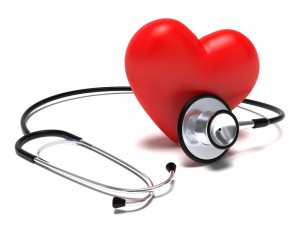February is “Heart Month” and this month’s blogs will focus on heart healthy tips from nutrition to exercise and stress. So, what is a heart healthy diet? In today’s blog you will discover some foods to increase in your diet and some foods to avoid for heart health. If you are not used to eating these healthier foods, I want to challenge you to start small. Small changes equal big results! Your heart is an amazing organ/muscle and with proper care, nutrition and exercise… you will have a strong and healthy heart throughout your life!
|
Eat More: |
| Healthy fats: raw nuts, olive oil, fish oils, flax seeds, or avocados |
| Colorful fruits and vegetables—fresh or frozen, prepared without butter |
| Fiber: cereals, breads, and pasta made from whole grains or legumes |
| Omega 3 and protein: fish and shellfish, poultry |
|
Eat Less: |
| Trans fats from partially hydrogenated or deep-fried foods; saturated fats from whole-fat dairy or red meat |
| Packaged foods of any kind, especially those high in sodium |
| White or egg breads, granola-type cereals, refined pastas or rice |
| Red meat, bacon, sausage, fried chicken |
- Limit solid fat. Reduce the amount of solid fats like butter, margarine, or shortening you add to food when cooking or serving.
- Substitute. Swap out high-fat foods for their lower-fat counterparts. Top your baked potato, for example, with salsa or low-fat yogurt
- Read your labels. Check food labels on any prepared foods. Many snacks, even those labeled "reduced fat,” may be made with oils containing trans fats. One clue that a food has some trans fat is the phrase "partially hydrogenated.”
- Say YES to change. The best way to avoid saturated or a trans fat is to change your lifestyle practices. Instead of chips, snack on fruit or vegetables. Challenge yourself to cook with a limited amount of butter. At restaurants, ask that sauces or dressings be put on the side—or left off altogether.
Not all fats are bad for your heart
While saturated and trans fats are roadblocks to a healthy heart, unsaturated fats are essential for good health. You just have to know the difference. “Good” fats include:
- Omega 3 Fatty Acids. Fatty fish like salmon, trout, or herring and flaxseed, canola oil, and walnuts all contain polyunsaturated fats that are vital for the body.
- Omega 6 Fatty Acids. Vegetable oils, soy nuts, and many types of seeds all contain healthy fats.
- Monounsaturated fats. Almonds, cashews, pecans, and butters made from these nuts, as well as avocadoes, are all great sources of “good” fat.
Check out more tips on: www.heart.org
[hs_action id="5688"]


